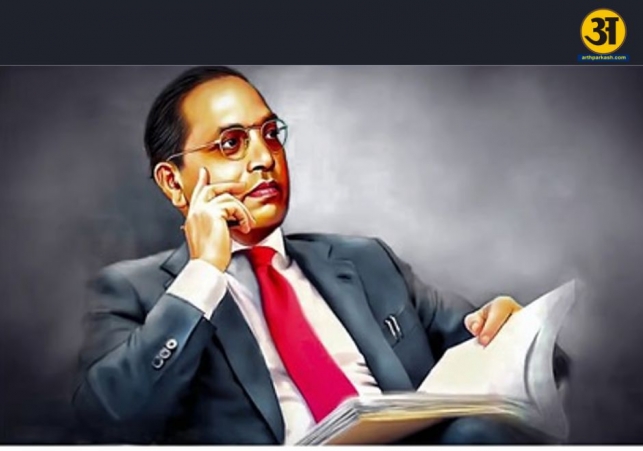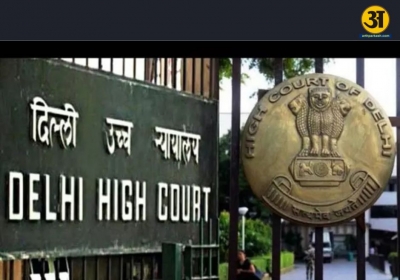
Ambedkar wanted Bihar, MP and UP divided for efficiency
Ambedkar supported smaller states for better governance, suggested splitting Bihar, Madhya Pradesh and Uttar Pradesh
- By Gurmehar --
- Monday, 14 Apr, 2025
Dr B.R. Ambedkar, the main writer of India’s Constitution, believed that smaller states are better for governance and democracy. He thought large states are difficult to manage and can become unfair to certain regions or groups. That is why, way back in 1955, he suggested dividing big states like Bihar, Madhya Pradesh, and Uttar Pradesh.
In his book Thoughts on Linguistic States, Ambedkar wrote clearly that the big states of that time were “too large and not administrable.” According to him, small and manageable states would help in better planning, smooth administration, and fair treatment of all people.
Ambedkar supported the idea of creating states based on language. However, he warned against making them too big. He wrote, “The idea of having bigger linguistic states is not a democratic idea at all.” He felt that very large states would go against the core values of democracy, and they might hurt national unity in the long run.
To make things better, Ambedkar gave some clear suggestions. He said:
-
Bihar should be divided into two states
-
Madhya Pradesh should be divided into Northern MP and Southern MP
-
Uttar Pradesh should be divided into three states, each having a population of around two crore (20 million) people.
He even proposed new capitals for the new states carved out of Uttar Pradesh — these were Meerut, Cawnpore (now Kanpur), and Allahabad (now Prayagraj).
According to Ambedkar, small states make the government more efficient. People living there can monitor public money, policies, and administration more closely. He wrote, “The bigger the state, the greater the demands for expenditure and the lesser the control over it by the people. In a small state, there is the advantage of responsibility and accountability.”
Ambedkar’s ideas were quite ahead of his time. At that time, no one really considered breaking up the big states seriously. But his views became important decades later. For example:
-
In 2000, Jharkhand was created from Bihar
-
Chhattisgarh was carved out of Madhya Pradesh
-
Uttarakhand (earlier Uttaranchal) was separated from Uttar Pradesh
These changes happened many years after Ambedkar had first suggested the idea in 1955.
Smaller states make people feel included
Ambedkar didn’t just talk about size. He also warned about the risks of making emotional decisions when it comes to creating states. He believed that decisions should be made logically, with the goal of improving governance, not just to please people’s feelings about language or region.
He wrote that language should not become a “disintegrating force” in the country. While he supported linguistic states, he said they must not harm India’s unity. He was worried that if language pride went too far, it could break the country into smaller and weaker parts.
So, for him, states should be made with two things in mind:
-
National unity – India must stay united.
-
Administrative practicality – The government must work smoothly in all regions.
Ambedkar also believed that smaller states would make people feel less ignored or left out. When a state is too large, many regions inside it feel they are not being heard. But in smaller states, he said, every group can have a voice and get a fair share of development.
In his view, Uttar Pradesh, which was the most populated state, should definitely be broken up. He suggested three smaller states with balanced populations. Each would be easier to manage and more focused on local needs.
This same idea came up again in 2011, when the then Chief Minister of Uttar Pradesh, Mayawati, proposed that UP be split into four smaller states:
-
Purvanchal
-
Paschim Pradesh
-
Bundelkhand
-
Awadh
Mayawati said that this would improve administration and help each region grow. However, her plan did not go forward because the central government at that time (the UPA government) did not support it.
Still, the fact that these ideas returned decades later shows that Ambedkar’s thinking was far-sighted and practical. Many experts believe his suggestions are still relevant today, especially as India’s population and administrative needs continue to grow.
What political thinkers say today
Many political scientists and thinkers today say that Ambedkar’s ideas are very useful in today’s discussions about federalism and decentralisation. These topics are about how power and resources are shared between the central government and the states.
In a country like India, with so much diversity in language, culture, geography, and population, one-size-fits-all solutions do not work. That’s why decentralisation — giving more power to smaller units — is considered a better way to manage things. This is exactly what Ambedkar was suggesting when he called for smaller, more efficient states.
Today, as some regions still feel neglected or underdeveloped, the idea of dividing states for better governance is still discussed. For example, the creation of Telangana in 2014, after being separated from Andhra Pradesh, was also based on this logic. The people of Telangana felt they were not getting equal treatment, and a separate state would give them more power over their resources and future.
Ambedkar’s suggestion of using a population limit of around two crore for each state also makes sense today. Most Indian states are much bigger than that now, and this creates problems in managing cities, villages, health, education, and law and order.
B.R. Ambedkar believed in practical governance, democratic values, and equal treatment for all regions. His idea of breaking up large states like Bihar, Madhya Pradesh, and Uttar Pradesh was not based on politics or emotions, but on logic and good governance. He warned that big states are hard to manage, give less power to the people, and may harm democracy.
Though his proposals were not acted upon immediately, many came true later. Some big states were divided to form new ones, which are now growing and developing at their own pace. His thinking continues to influence today’s leaders, administrators, and scholars.
Ambedkar showed that good governance is not just about creating laws, but also about making sure the system works well for everyone. That’s why his vision of smaller, better-managed states is still important for India’s future.





